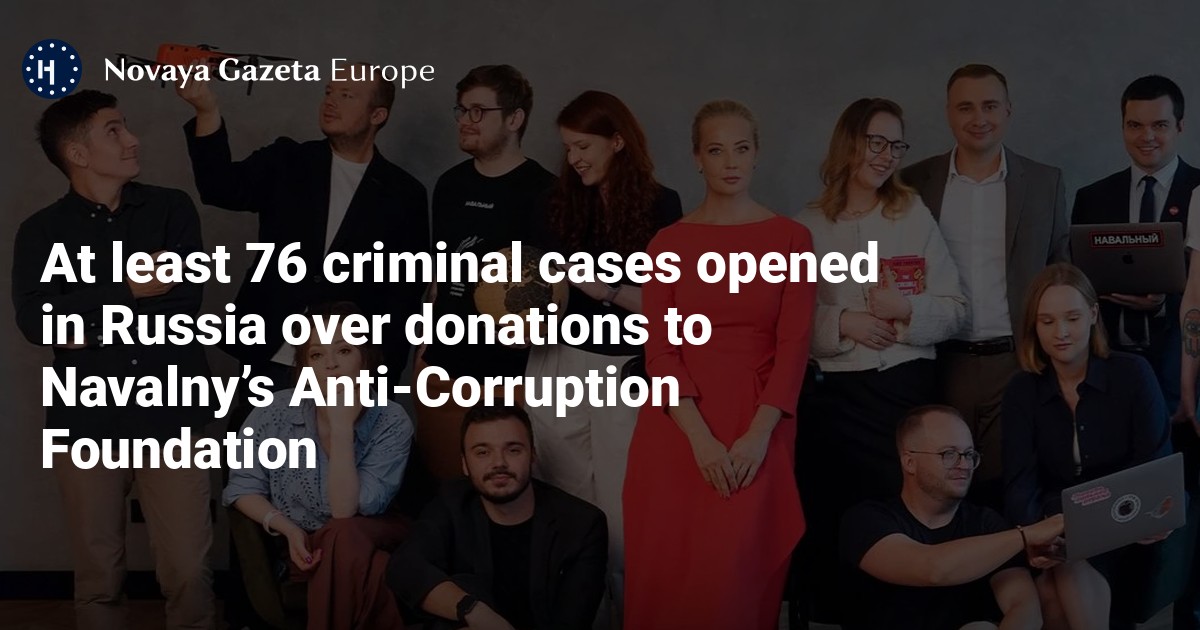




Alexey Navalny’s widow Yulia Navalnaya (centre) and the FBK’s team. Photo: FBK
Since Russia designated Alexey Navalny’s Anti-Corruption Foundation (FBK) as an “extremist” organisation, authorities have launched at least 76 criminal cases against individuals accused of making donations to the group, independent news outlet Mediazona has reported.
Following a court ruling in the summer of 2021 that labelled the FBK “extremist,” Navalny’s team relaunched its fundraising campaign, this time accepting donations via the US-based payment platform Stripe. The idea was that Stripe would not share user data with Russian authorities, and that the transactions would not be visible to Russian banks.
However, in the early days of the campaign, it emerged that bank statements were still showing references to FBK. Navalny’s allies acknowledged the issue and said they had resolved it.
Fundraising from within Russia continued until March 2022, when Visa and MasterCard suspended operations with Russian banks following the invasion of Ukraine. By the summer of 2022, the first criminal cases linked to donations to the so-called “extremist” organisation had begun to appear — largely targeting individuals who had managed to send money via Stripe before the initial error was fixed.
According to Mediazona, Russian security services have since learned to identify donations even when FBK is not explicitly mentioned in the transaction. In 2024 alone, Russian courts received 25 such cases, and a further 34 were filed in the first half of 2025.
Journalists believe that investigators are identifying donors through the merchant ID — a unique code used by banks to route funds to the correct recipient. This merchant ID appears in bank transaction records and enables authorities to trace payments, even when no direct mention of FBK is present.
